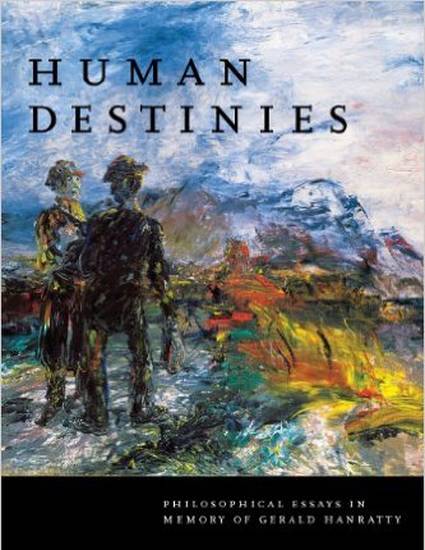
Contribution to Book
The Unity of Thought in Aristotle, Kant, and Heidegger
Human Destinies: Philosophical Essays in Memory of Gerald Hanratty
(2012)
Abstract
In "The Unity of Thought in Aristotle, Kant, and Heidegger," Brian Elliott assesses Heidegger’s contribution to understanding human cognition. Within accounts of Western philosophy it is generally assumed that Kant’s critical project marks a definitive break with the metaphysical tradition founded by Aristotle. Through detailed analysis of certain aspects of the theories of cognition offered by Aristotle and Kant respectively, Elliott questions this standard assumption. One salient feature of convergence between the two thinkers is the notion of imagination as a key mediating cognitive act or function. Both thinkers also endorse what might be called a vertical hierarchy of cognitive powers, with sensation or sensible intuition counting as basic and primitive, and rational thought as ultimate and most advanced. The overriding concern in both the Aristotelian and Kantian accounts is to identify an effective act or source of cognitive unity. In both cases a form of imagination is seen as key to such unity, though the respective analyses of imagination offered fail to give consistent and cogent grounds for assuming that such unity can in fact be achieved through acts of the imagination. In his 1929 work Kant and the Problem of Metaphysics, Heidegger identifies Kant’s notion of the transcendental imagination as key to his critical account of cognition. Heidegger claims that Kant’s account of the imagination brings the traditional concern for unity within Western thought to the edge of an abyss, an abyss that he identifies as human freedom. Rather than offering an interpretation of Kant that effectively clarifies the nature of this “abyss,” Heidegger’s account turns on putative contradictions and tensions within Kant’s text that are in fact testimony to the subtlety and complexity of the Kantian account of cognition. Instead of offering a genuine alternative to the concern for ultimate rational unity that characterizes the tradition of Western thought, Heidegger’s concept of “ecstatic temporality” constitutes a less subtle, more strictly univocal reaffirmation of such a concern.
Keywords
- Philosophy
Disciplines
Publication Date
2012
Publisher
University of Norte Dame Press
Citation Information
Brian Elliott. "The Unity of Thought in Aristotle, Kant, and Heidegger" Human Destinies: Philosophical Essays in Memory of Gerald Hanratty (2012) Available at: http://works.bepress.com/brian-elliott/7/
